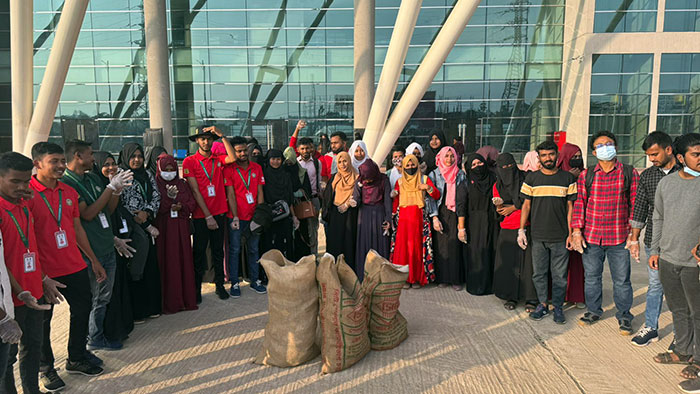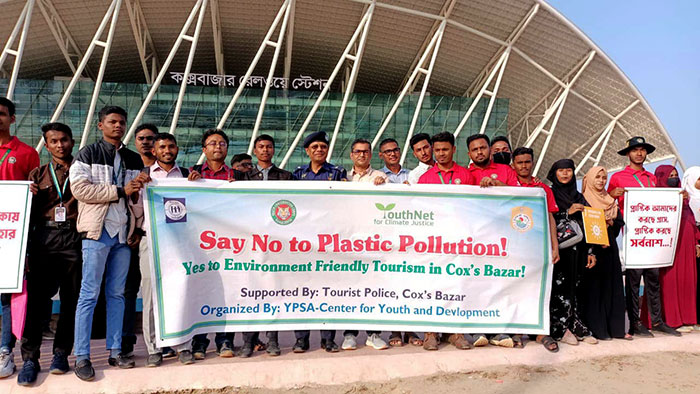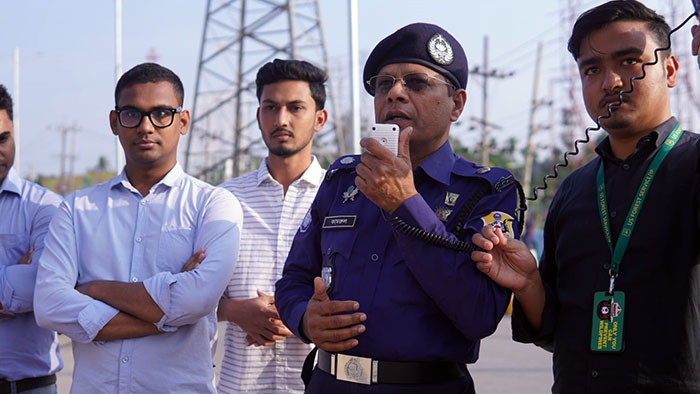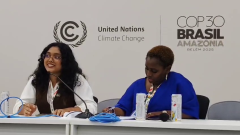Cox’s Bazar, renowned for its tourist appeal, grapples with persistent waste mismanagement issues. From human effluent to plastic waste, the city is entangled in a multifaceted waste crisis, jeopardizing biodiversity and environmental well-being.
In response to this crisis, YPSA Center for Youth and Development, in collaboration with Cox’s Bazar Tourist Police, spearheaded a Human Chain event on 11 January at the iconic railway station. The objective is to raise awareness among local and external tourists, emphasizing the urgent need to halt all forms of plastic use in Bangladesh, with exceptions in crucial areas.

The indiscriminate disposal of garbage in municipal areas, especially on Cox’s Bazar Sea Beach and Bankkhali River, has transformed these spaces into dumping grounds for harmful products, a direct consequence of daily plastic commodities and factory-manufactured waste.

Speakers at the event emphasized the necessity of enforcing government laws to curb plastic use, calling for the creation of viable alternatives. With the recent inauguration of the first iconic railway station attracting thousands of tourists, the event seeks to instill a sense of responsibility among visitors to maintain cleanliness and reduce single-use plastic usage.
![]()
The first Iconic Railway Station has become not only a transportation hub but also a tourist attraction. However, the influx of local and external tourists has led to the careless disposal of waste in the area. YPSA’s initiative aims to combat this issue, supported by Tourist Police, Youth Conservation Network, and YouthNet.

The event featured the participation of Additional DIG of Tourist Police Apple Mahmud as the chief guest and Mofaq Kharul Taufiq, YCC specialist USFS/IP, as a special guest, highlighting the collaborative effort required to address Cox’s Bazar’s waste management challenges. Together, they emphasized the importance of responsible tourism and the collective responsibility to protect the environment for current and future generations.



